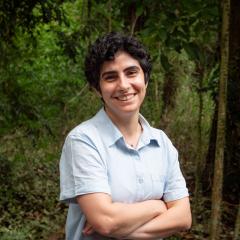The long-awaited genome sequencing of Arabica coffee could be the solution to producing a high-quality Australian-grown coffee, according to a University of Queensland researcher.
Professor Robert Henry from Queensland Alliance for Agriculture and Food Innovation was part of a large international team which mapped the genome of Arabica, thought to be the first species of coffee cultivated.

“Ten years ago, this group mapped the genome of the simpler Robusta coffee – we now understand the origins of the two most common coffee varieties in the world,” Professor Henry said.
“60 per cent of coffee products worldwide are made from Arabica,” Professor Henry said
“Now that we understand the origins of Arabica coffee and its domestication, it provides perspective on how we arrived at our modern coffee varieties.
“A wider genetic range of coffee would allow us to combat the threat posed by climate change.
“The cooler high-altitude areas where high quality coffee is produced are declining, so those environments are not as favourable as they once were.
“We need new varieties that cope better with production in various environments.”
Professor Henry said coffee was a crop of high value, making the genome invaluable.
“Coffee plays a role in many everyday social interactions, and it also represents a major source of income for the developing countries where it’s produced,” Professor Henry said.
“It’s considered the most valuable agricultural commodity traded in the world, with an estimated production of 10 million metric tons per year.
“The Arabica genome was difficult to complete because it’s more genetically complex and has twice as many chromosomes as Robusta.
“But technological advances in recent years have allowed us to finally complete the work.”
Professor Henry’s team is now part of a project to sequence the coffee genus, funded by Brazil and France, which will look at more than 30 species.
“This study will help us understand how we can incorporate different levels of flavour and aroma, including caffeine, bitterness, and sugar content, to breed high quality coffees that could grow in a wider range of environments,” Professor Henry said.
And he sees potential for an Australian coffee variety.
“Because our production costs are so high, any coffee produced here has to be of high value and so, the challenge is to develop the technology and varieties to produce premium quality in Australian environments.”
The research was published in Nature Genetics.
Images are available via Dropbox.
Media: Professor Robert Henry, Robert.henry@uq.edu.au, +61 419 693 078; QAAFI Communications, Natalie MacGregor, n.macgregor@uq.edu.au, +61 409 135 651.
The Queensland Alliance for Agriculture and Food Innovation is a research institute at The University of Queensland supported by the Queensland Government via the Queensland Department of Agriculture and Fisheries.



